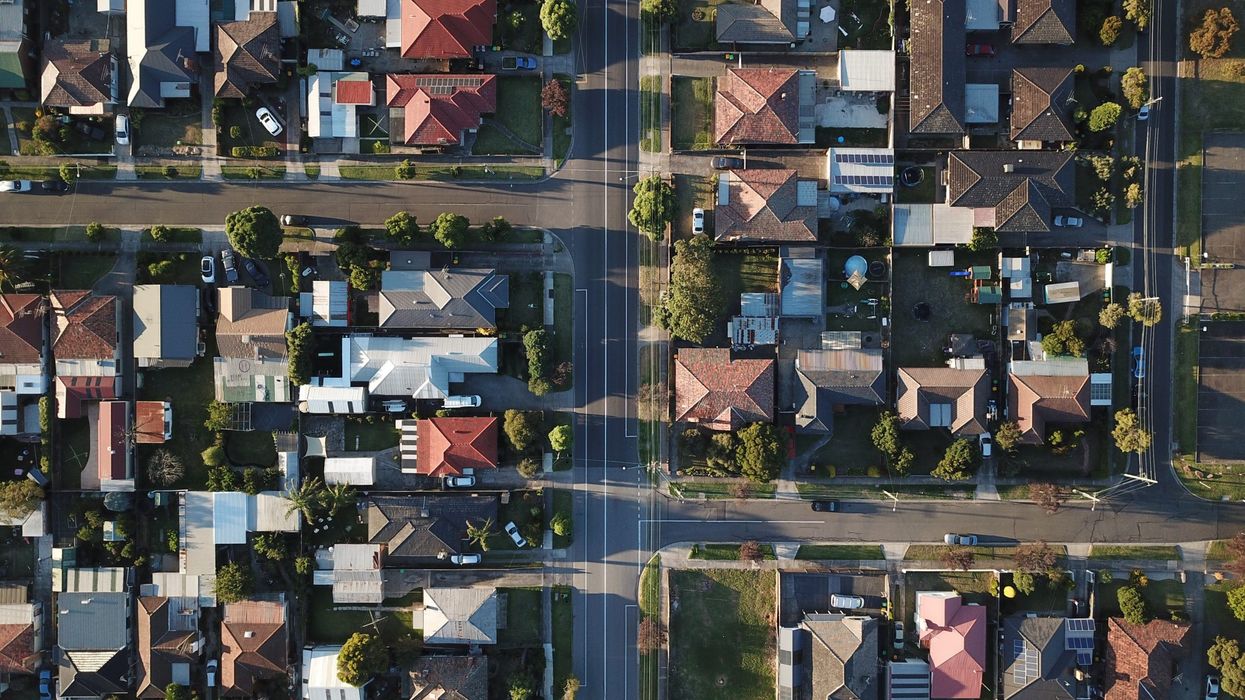Canada's housing affordability hit its lowest point in 31 years during the fourth quarter of 2021, a new report from RBC reveals.
The Housing Trends and Affordability report, released on Wednesday, says that the bank's aggregate affordability measure for Canada -- a measure of mortgage payments, property taxes, and utilities as a percentage of median household income -- rose 1.6% during the fourth quarter to 49.4%. This marks a 7.2% deterioration year-over-year -- the second-largest drop on record.
Three of Canada's major markets, Toronto, Vancouver, and Victoria, have seen the some of the biggest loses in terms of affordability. Although RBC notes that this drop in affordability is widespread, areas like the Prairies and some east-coast markets haven't been hit quite as hard, with ownership costs in these regions still considered "manageable."
And it's not looking like the situation will get any better any time soon. With prices continuing to skyrocket across markets and the Bank of Canada expected to continue hiking up interest rates, "ownership costs look set to spiral even higher," the report says.
"Things are going to get worse," said Robert Hogue, Assistant Chief Economist at RBC Economics. "Unfortunately, it looks like affordability is going to continue down and our affordability measure will continue to go up, meaning that affordability is going to continue to deteriorate at least over the next little while."
Canadians are already paying a hefty premium when it comes to ownership costs. During the fourth quarter of 2021, the aggregate price across Canada was up 17% compared to late 2019 valuations, which, the report notes, were already quite steep. In certain markets, though, that premium was significantly higher. In Halifax, the aggregate price is up 26% compared to late 2019. In Ottawa it's up 24% and in Toronto, it's up 22%.
"We see large departures from historical norms as signs that prices have detached from local buyers’ realities," the report reads. "Whether lofty valuations can be sustained will largely depend on how long demand-supply conditions remain ultra tight and market sentiment stays bullish. We think a large (and likely rapid) increase in interest rates in time will bring about significant changes: cooler demand, easing imbalances and possibly dampening expectations."
Sensitivity to Interest Rate Hikes
With the current market's sky-high prices, any change to interest rates will have an amplified effect on mortgage payments, the report says. A buyer who's purchased a standard home in Canada, valued at $775,000, would be faced with paying an additional $315 per month if interest rates were to go up by 1%. Relative to current household income, this impact is two-thirds larger now than it would have been 10 years ago.
"While income gains will provide a partial offset, it’s entirely possible RBC’s [affordability] measure could spike to all-time highs in the year ahead," the report reads. "A shock of this magnitude would severely stress homebuyers and exert significant downward pressure on demand."
The Bank of Canada's most recent hike brought up its interest rate from a historic low of 0.25% to 0.5%. Although small, several more are expected to roll out throughout the rest of the year and into 2023.
"Certainly a quarter of 1% increase in the Bank of Canada rate is not a game changer for the market," Hogue said. "It's once we're get to a cumulative 75 basis points to 100 basis points, that is going to start to weigh potentially quite significantly on the market."
Although rising rates will impact homebuyers across the board, the effects will be even more intense in Vancouver, Toronto, and Victoria, RBC says. This is thanks to their higher-than-average mortgage sizes. Buyers in Montreal, Ottawa, and Halifax will also face further deterioration of affordability, though not quite as steep.
To combat this, buyers may have to turn to alternative ownership methods, including renting out part of the property or exploring co-ownership. The report also suggests some buyers will look to more modest homes, more affordable neighbourhoods, variable mortgages instead of fixed, and seeking downpayment help from parents.
As mortgage affordability decreases, it stands to reason that so too will the current demand. But the alternative ownerships methods coupled with Canada's increased immigration targets will soften that effect.
"We look at a composition of immigrants today relative to 10 or 20 years ago, and there's a lot more professionals and highly skilled immigrants that may be in a position to own a home right away," Hogue said. "So those coming into the country might be in very short order in the market to buy a home, so that will add to the demand and it'll be a partial offset to the downward force coming from a higher interest rate."





















